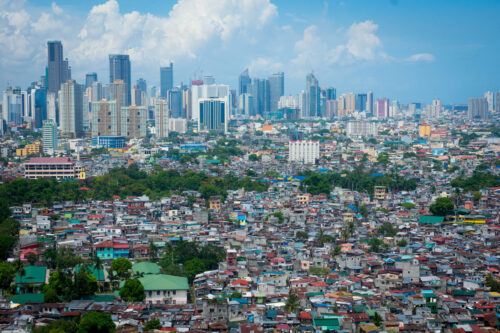Seven Ways USAID is Working with Cities

There’s no denying it – the future of development is urban. The facts are plain and simple. United Nations data shows that the world is rapidly urbanizing. And since 2009, more people live in urbanized areas than rural communities across the globe. Cities are the driving force for economies, by some estimates accounting for up to 80% of GDP. These trends are likely to continue – as hubs for employment and educational opportunities, cities continue to be magnets for migration and growth.
While cities offer tremendous opportunities for progress, they also face a range of complex challenges, from pandemics to pollution. Cities are places where the most important development trends and issues intersect and interact – environmental management and public health; governance and economic growth; resilience and stability – creating opportunities for development programming to work across traditional sectors for greater impact.
USAID is investing in a range of strategic investments to advance urban solutions. On World Cities Day, USAID is featuring a comprehensive range of projects and content that showcases not only the need to focus on cities and urban areas, but also the need to demonstrate the increasing demand for evidence-based and locally-appropriate solutions. Here are seven ways USAID is working with cities to improve overall development and advance the Journey to Self-Reliance:
One: Taking on Urban Air Pollution
Did you know that air pollution kills more people than tuberculosis, HIV/AIDS, and malaria combined? Together with a global consortium led by World Resources Institute and Environmental Defense Fund, USAID is launching a new flagship program to identify and advance solutions to urban air pollution in three pilot cities: Learn More…
Two: Improving Urban Service Delivery
In places like Iraq, the delivery of municipal services, like water, electricity, and solid waste management are not only important for everyday life, they are essential for strengthening the relationship between government and citizens. That’s why USAID/Iraq’s Governance and Performance Accountability Project is working to improve municipal government operations and public service delivery: Learn More…
Three: Building Healthier Cities
Urban transportation, sanitation, education, recreation, environment, and technology all influence the health of a population. With particular emphasis on the health of women, children under the age of five and vulnerable populations, USAID’s Building Healthy Cities program is refocusing city policies, planning, and services with a multi-sectoral health equity lens while improving data-driven decision-making for Smart Cities in India, Indonesia, and Vietnam: Learn More…
Four: Helping Cities Deal with COVID-19
Cities are often at the frontlines of the COVID-19 pandemic. While creating challenges, this crisis also offers a unique opportunity for local chief executives, mayors, and urban planners to rethink how cities can function better. In the Philippines, USAID’s Cities Development Initiative is supporting a “Rising to the COVID-19 Leadership Challenge” virtual learning exchange. This platform serves as a venue for mayors and local and international experts to share and learn from peers’ experiences in responding to similar challenges in contact tracing, mitigation strategies, industry revitalization, and expanded testing: Learn More…
Five: Supporting Cities as a Strategy for Stability
With its territory divided between two governments and its national institutions in disarray, cities play a crucial role in Libya. USAID is working with cities like Zliten – a city of 300,000 on the Mediterrean coast – to improve essential services. This summer, USAID helped local officials establish an Emergency Operations Center and build an array of community emergency response teams to better manage the COVID-19 pandemic – a model now being shared with 29 other Libyan cities: Learn More…
Six: Partnering with Cities to Combat Ocean Plastic Pollution
Most of the estimated 8 million tons of plastic pollution entering the ocean each year comes from rapidly urbanizing cities in the developing world where waste management systems, infrastructure, and governments struggle to keep pace with growing populations and increasing amounts of waste. USAID’s Clean Cities, Blue Ocean and Municipal Waste Recycling programs are partnering with municipal and national governments, businesses, and civil society to improve solid waste management and promote the 3Rs (reduce, reuse, recycle) in key cities in Asia and Latin America: Learn More…
Seven: Improving Urban Water, Sanitation and Hygiene
The majority of Indonesia’s urban poor, like most urban poor in middle-to-low income developing countries, lack safe and effective sanitation. Most human waste is released untreated into the environment with devastating consequences — approximately 100,000 children across Indonesia die every year from diarrheal diseases. USAID’s Indonesia Urban Water, Sanitation and Hygiene Penyehatan Lingkungan untuk Semua (IUWASH PLUS) program is working with 35 local governments to build capacity to reduce barriers to safely managed water and sanitation services and improve hygiene practices: Learn More…
Learn more about USAID’s urban programs at www.urban-links.org or contact us at urban@usaid.gov.
[1] World Population Prospects
[2]McKinsey Report: Urban World: Mapping the Economic Power of Cities

